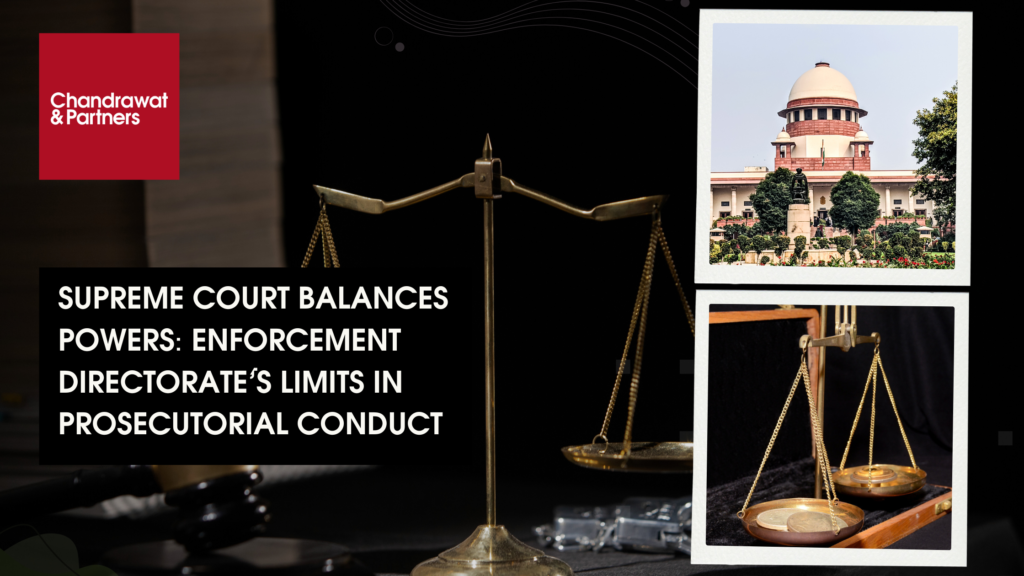Home > Recent Judgements > Supreme Court Balances Powers: Enforcement Directorate’s Limits In Prosecutorial Conduct
DEC 23, 2024
BACKGROUND
The case of Zeeshan Haider v. Directorate of Enforcement is a significant legal dispute that highlights the intricate relationship between individual rights and enforcement agencies in India.
Due to the seriousness of the allegations, lower courts originally rejected the accused’s bail requests during the legal processes. The Supreme Court did, however, subsequently issue bail with some restrictions, highlighting the necessity of the prosecution acting independently and guaranteeing the prompt completion of the trial. The emphasis on fair trials, the independence of prosecutors, and the necessity of striking a balance between the rights of the accused and the need to confront grave accusations like money laundering are all highlighted in this case.
The case revolves around the actions of the Directorate of Enforcement (“ED”), a key government agency responsible for investigating financial crimes and enforcing economic laws.
KEY ISSUES
- Whether the Enforcement Directorate’s powers extend beyond the intended scope under various economic legislations?
- Whether the agency’s mandate can be balanced with the protection of individual rights?
- Whether the Enforcement Directorate complied with procedural requirements during the investigation?
SUPREME COURT RULING
The Supreme Court of India ruled that the ED can provide factual case details to prosecutors but cannot direct their courtroom strategies. Following a trial court’s order highlighting procedural concerns, the Court emphasized prosecutors’ independence and their right to make autonomous legal decisions.
The court in this case that revolves around the role and limitations of the ED in criminal proceedings, specifically focusing on the agency’s interaction with prosecutors and its impact on bail applications.
- ED can share information about a case with prosecutors
- ED cannot instruct prosecutors on how to argue or act in court
- Prosecutors must maintain impartiality and exercise independent professional judgment
- Bail can be granted if trial delays are attributable to the investigating agency
- Reinforced the principle of separation between investigative and prosecutorial functions
OBSERVATION
The Supreme Court’s observation in this case reflects a careful balancing of law enforcement powers and constitutional rights. The Court recognized that while money laundering poses a serious threat to national security and economic stability, enforcement actions must respect procedural safeguards and fundamental rights. In examining the Prevention of Money Laundering Act (“PMLA”), the Court validated the Enforcement Directorate’s investigative authority while emphasizing the necessity of transparency and due process.
The Court concluded that while the PMLA grants significant powers to enforcement agencies, these powers must be exercised within constitutional boundaries. The judgment upheld the ED’s authority to arrest and seize property, but mandated proper disclosure of grounds for arrest and adherence to established procedures. Regarding bail provisions, the Court maintained the PMLA’s twin conditions while emphasizing their reasonable application. This balanced approach ultimately affirmed the Act’s constitutionality while establishing important guardrails to prevent potential abuse of power, ensuring both effective enforcement and protection of individual rights.
For more information or queries, please email us at
[email protected]





